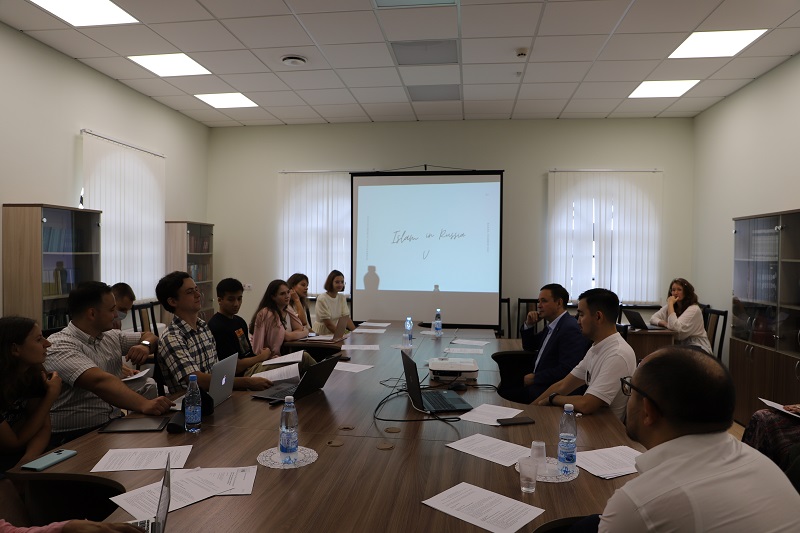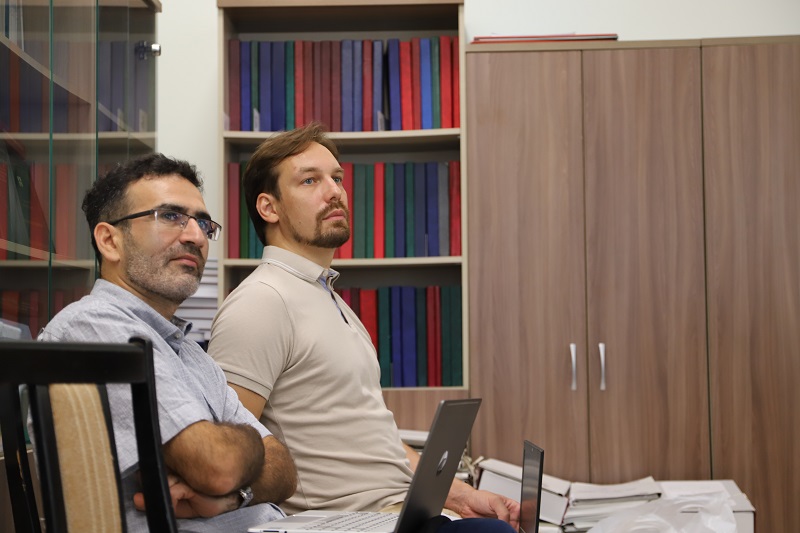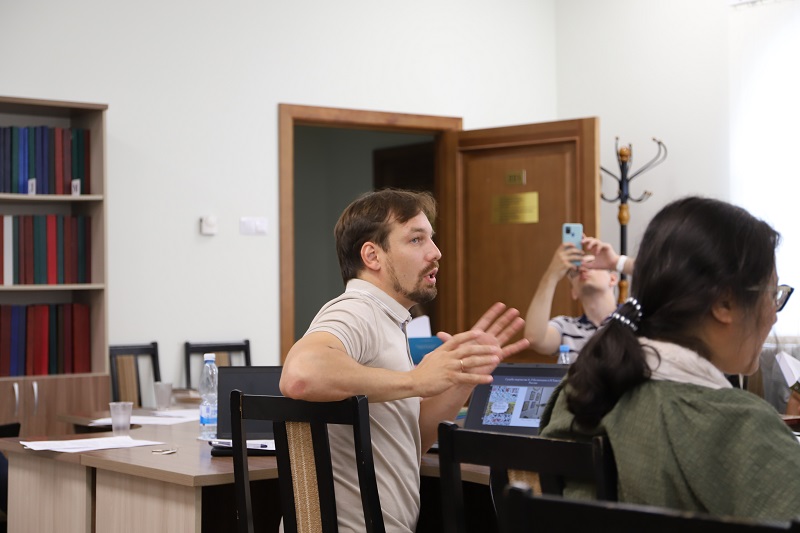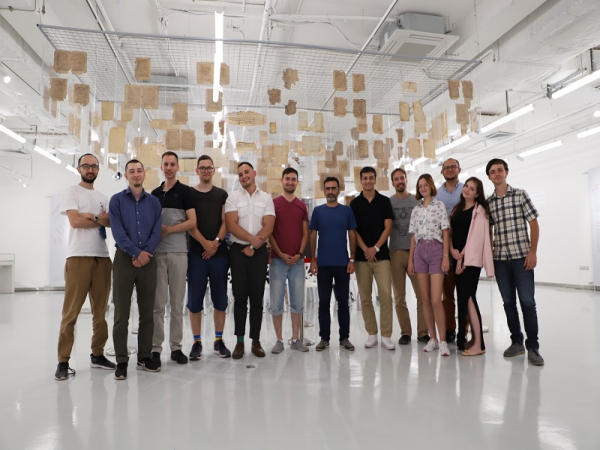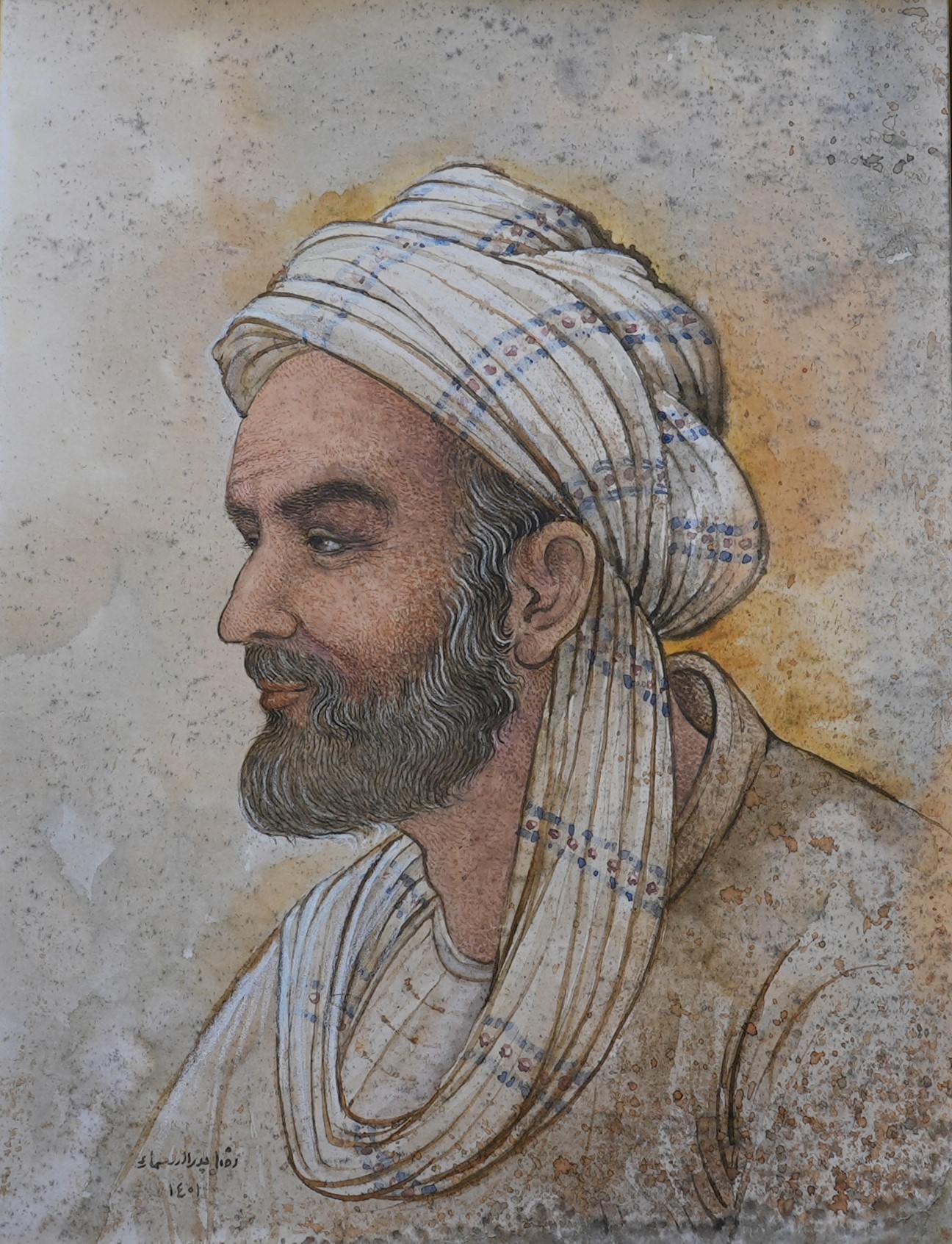This year the Ibn Sina Foundation took part in the “Islam in Russia…” summer school for the first time.
On August 16, the first day of the programme, Andrey Lukashev, research director of the Ibn Sina Foundation, made a presentation on the activities of the Foundation at the Marjani Institute of History, of the Tatarstan Academy of Sciences, where he spoke about the main activities of the Foundation. Andrey Lukashev said that the main task of Ibn Sina Foundation is providing support for Russian Islamic studies and spreading information about Islamic culture. He also noted that this can only be possible in cooperation with leading Russian academicians and research centres.
Apart from the publishing activities Andrey Lukashev also presented the media projects that the Foundation has been working on, in particular the “Oral history” series of interviews and “Islam in the Mirror of Science”.
The programme also included the screening of the documentary film “Tochka” at the National Library of the Republic of Tatarstan.
The film “Tochka” is the first full-length work by the Ibn Sina Foundation directed by Emir Valinejad. Russian and Iranian leading experts on Islamic art and hand-written heritage, such as Hamid-Reza Kelichkhani, Mais Nazarli, Galina Lasikova and Irina Popova took part in the work on the film. The film was highly praised by the audience and won the Golden Branch and VIVA awards.
This year the “Islam in Russia…” summer school was held in Kazan. This was the fifth summer school organised by Alfrid Bustanov with the participation of colleagues from Russia, Kazakhstan, Uzbekistan and other CIS countries. As envisioned by the organizers, the School should follow international academic standards and should be mobile in order to not only attract students from different places, but also to actively use the existing regional potential. In addition, the organizers seek to combine classical themes related to the study of written monuments and contemporary challenges. One of the School’s distinctive features is the openness of its participants to different theoretical approaches.
